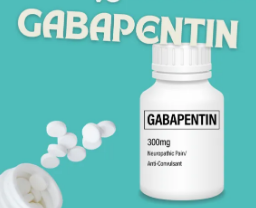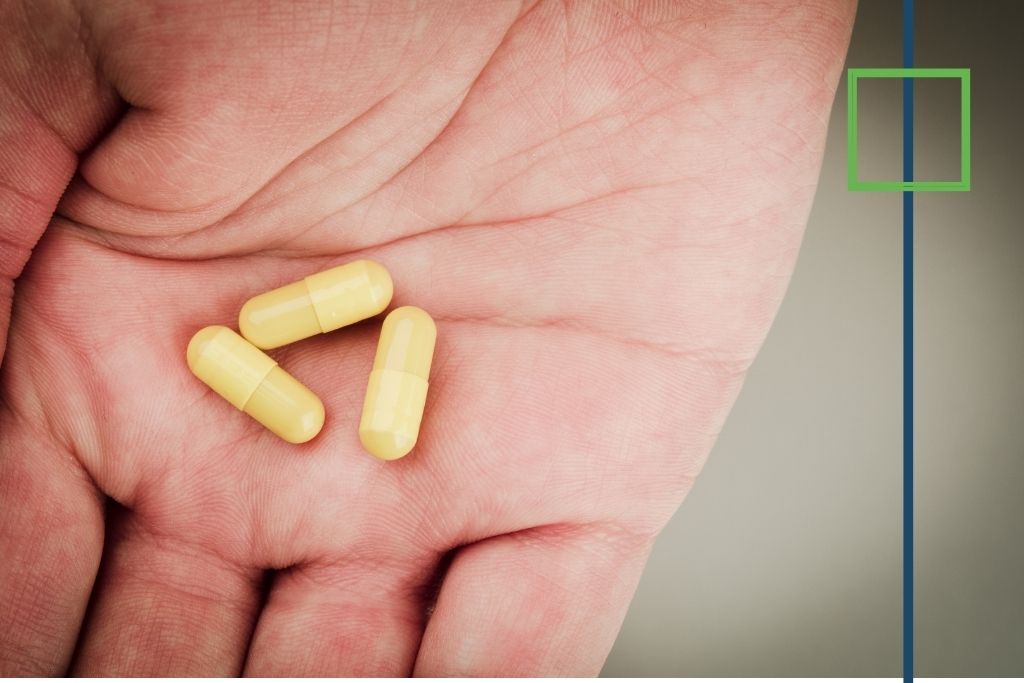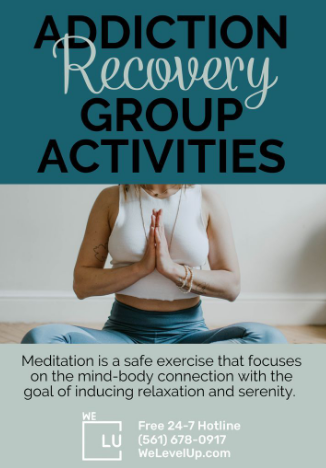Gabapentin Ruined My Life
Gabapentin, which is approved to treat seizures, is frequently prescribed for conditions other than those for which it was originally intended, including anxiety and pain. On the other hand, some people have reported experiencing severe addiction and withdrawal effects from gabapentin, leading them to state that “Gabapentin ruined my life.” Because the effects of the drug on the brain are not always predictable and can differ greatly from one person to the next, it is essential to use the drug with extreme caution and under the close supervision of a qualified medical professional.
Both an immediate-release and an extended-release version of gabapentin are currently on the market. It is most commonly consumed in the form of a pill. According to the available information on the medication, the half-life of gabapentin in most people is between five and seven hours. The amount of time required for an individual’s system to break down a drug to a concentration in the bloodstream that is half of its initial or starting concentration is the drug’s “half-life.”
After five to eight half-lives, gabapentin would have been eliminated from the systems of the majority of people. Considering that the half-life of gabapentin in most people is approximately seven hours, it will take approximately 48 hours for the drug to be eliminated from the body; however, other factors can influence this process. For instance, the extended-release forms of gabapentin would continue to release the drug over the course of time, thereby extending the period during which it would be possible to detect its presence.
Gabapentin Addiction Stories
After suffering nerve damage in a car accident, John was given Gabapentin to relieve his discomfort. At first, it was a relief, but eventually, he needed the pills just to function normally. John began taking excessive amounts of the drug and soon became dependent on Gabapentin.
He knew he needed help when his addiction negatively impacted his personal and professional life. After consulting with John’s physician, a rehabilitation center was suggested. He was able to identify and address the causes of his addiction and develop strategies to deal with relapse while in treatment.
John described himself as “a different man” after finishing the program. He prioritized his health and well-being and found alternative methods to alleviate his pain. John appreciated the help he received and the skills he learned to overcome his Gabapentin addiction, despite the difficulty of his recovery process.
How Long Does it Take to Get Addicted to Gabapentin?
Gabapentin is offered in the form of an immediate-release or extended-release tablet. The efficacy of either formulation is contingent upon various factors, including but not limited to age, renal function, and concurrent pharmacotherapy. The onset of gabapentin’s effects may vary due to its diverse indications.
Typically, sleep disturbances caused by neuropathic pain may exhibit amelioration within a week; however, alleviating the pain itself may require up to two weeks to become perceptible. The reduction of seizures can typically be observed within a few weeks of initiating gabapentin treatment. The amelioration of symptoms associated with restless legs syndrome or postherpetic neuralgia, a type of nerve pain that occurs after an episode of shingles, may require a period of several days or weeks to manifest.

Skip to:
Learn More:
Get Help. Get Better. Get Your Life Back.
Searching for Accredited Drug & Alcohol Rehab Centers Near You? Or Mental Health Support?
Even if you have failed previously, relapsed, or are in a difficult crisis, we stand ready to support you. Our trusted behavioral health specialists will not give up on you. Call us when you feel ready or want someone to speak to about therapy alternatives to change your life. Even if we cannot assist you, we will lead you wherever you can get support. There is no obligation. Call our hotline today.
FREE Addiction Hotline – Call 24/7Gabapentin Abuse Statistics
Prevalence of gabapentin misuse in the general population was reported to be 1%, 40– 65% among individuals with prescriptions, and between 15–22% within populations of people who abuse opioids. An array of subjective experiences reminiscent of opioids, benzodiazepines, and psychedelics were reported over various doses, including those within clinical recommendations. Gabapentin was primarily misused for recreational purposes, self-medication, or intentional self-harm and was misused alone or in combination with other substances, especially opioids, benzodiazepines, and/or alcohol. Individuals with histories of drug abuse were most often involved in its misuse.
8%
Neuropathic pain affects up to 8% of the population, causing significant distress and morbidity. Gabapentin is one of the recommended mainstays of evidence-based treatment.
Source: NCBI
1%
The prevalence of gabapentin abuse in the general population was reported to be 1%,
Source: SAMHSA
40%
40–
65% among individuals with prescriptions and between 15–22% within populations of people
who abuses opioids also abuses gabapentin
Source: SAMHSA
Gabapentin Drug Facts
Gabapentin Abuse Overview
Gabapentin abuse is the misuse or overuse of medication for non-medical purposes. This can include taking higher doses than prescribed, taking the medication more frequently than directed, or using it without a prescription.
Gabapentin abuse can lead to negative physical and mental health effects, including addiction, withdrawal symptoms, and overdose. It is important to use gabapentin only as directed by a healthcare provider and to seek help if you or someone you know is struggling with gabapentin abuse.
Gabapentin Abuse Treatment
Gabapentin abuse can be treated with medication-assisted treatment, behavioral therapy, and support groups.
Treatment plans are tailored to the individual and may include detoxification, medication management, and counseling to address underlying issues related to substance abuse.
It is important to seek professional help to develop a personalized treatment plan for gabapentin abuse.
Gabapentin Side Effects
Gabapentin is a medication commonly prescribed to treat various medical conditions, such as seizures, neuropathic pain, and anxiety disorders. While it is generally considered safe and effective, there are some potential side effects to be aware of, including:
- Dizziness or drowsiness.
- Fatigue or weakness.
- Nausea or vomiting.
- Headache.
- Dry mouth.
- Swelling in the extremities.
- Mood changes or depression.
- Difficulty speaking or slurred speech.
- Coordination problems.
- Memory or concentration difficulties.
- Unusual eye movements.
- Allergic reactions.
If you experience these side effects, you must talk to your healthcare provider to determine the best action. Sometimes, adjusting the dosage or switching to a different medication may be necessary.
Most Popular Gabapentin Ruined my Life FAQs
-
Is gabapentin an addictive drug? How addictive is gabapentin?
Gabapentin and addiction go hand in hand because the drug can be abused, leading to dependence. Even though it’s not as addictive as opioids or benzodiazepines, it can still cause physical and mental dependence, especially if taken in high doses or for a long time.
-
Is gabapentin addictive yes or no?
Yes. Yes, gabapentin can be addictive, especially when misused or taken in higher doses than prescribed.
World-class, Accredited, 5-Star Reviewed, Effective Addiction & Mental Health Programs. Complete Behavioral Health Inpatient Rehab, Detox plus Co-occuring Disorders Therapy.
CALL (877) 378-4154End the Addiction Pain. End the Emotional Rollercoaster. Get Your Life Back. Start Drug, Alcohol & Dual Diagnosis Mental Health Treatment Now. Get Free No-obligation Guidance by Substance Abuse Specialists Who Understand Addiction & Mental Health Recovery & Know How to Help.
Is Gabapentin Addicting?
Can you be addicted to gabapentin? There is a possibility of addiction to gabapentin. Even though the DEA does not consider it a controlled substance, there is still a risk of abuse and addiction. Some people can become physically dependent on the drug, in which case they would experience withdrawal symptoms if they stopped taking it.
Can you become addicted to gabapentin? Because it can amplify the effects of other drugs, such as opioids and benzodiazepines, gabapentin can lead to the development of an addiction. Additionally, it can produce feelings of euphoria and relaxation, both of which have the potential to lead to psychological dependence. In addition, taking gabapentin in high doses can lead to physical dependence and withdrawal symptoms, which increases the likelihood that one will become addicted to the drug.


Get Your Life Back
Find Hope & Recovery. Get Safe Comfortable Detox, Addiction Rehab & Mental Health Dual Diagnosis High-Quality Care at the We Level Up Treatment Centers Network.
Hotline (877) 378-4154How Long Does It Take for Gabapentin to Kick In?
After taking gabapentin for the first time, you should wait anywhere from one to three hours before experiencing any noticeable effects. However, the amount of time it takes for an individual to feel the full effects of gabapentin can vary depending on several factors. These factors include the individual’s age, weight, the severity of their medical condition, and the dosage that they take.
Can gabapentin be addictive? Some people may feel relief from their symptoms more quickly than others. At the same time, it is also possible that it will be necessary for some people to take gabapentin for a longer period of time before they notice any significant improvements in their condition. It is essential to strictly adhere to the dosage instructions provided by a competent medical professional if one wishes to use gabapentin in a harmless and effective manner. This will ensure that the medication is used correctly.
First-class Facilities & Amenities
World-class High-Quality Addiction & Mental Health Rehabilitation Treatment
Rehab Centers TourRenowned Addiction Centers. Serene Private Facilities. Inpatient rehab programs vary.
Addiction Helpline (877) 378-4154Proven recovery success experience, backed by a Team w/ History of:
15+
Years of Unified Experience
100s
5-Star Reviews Across Our Centers
10K
Recovery Success Stories Across Our Network
- Low Patient to Therapist Ratio
- Onsite Medical Detox Center
- Comprehensive Dual-Diagnosis Treatment
- Complimentary Family & Alumni Programs
- Coaching, Recovery & Personal Development Events

Factors Affecting How Long Gabapentin Stays in Your System
Despite not being categorized as a federally controlled substance, gabapentin has been subjected to regulation by certain states in the United States as a result of its growing misuse. According to a study, the incidence of gabapentin misuse and abuse was estimated to be between 40-65% among individuals with prescriptions and 15-22% in opioid-abusing populations, in contrast to 1% in the general population.
The elimination half-life of Gabapentin in the human body is approximately 45 hours. Several factors have been identified that could potentially affect metabolism.
- Gabapentin builds up in the body when it is taken in large amounts. If you take a lot of it, it might stay in your body longer.
- Gabapentin stays in the body longer when used more often because the concentration of the drug in the blood rises.
- Age: As people age, their kidneys work less well. Since the kidneys break down gabapentin, the process takes longer for older people.
- Health in general: The amount of time gabapentin stays in the body is directly related to how well the kidneys work. Gabapentin can stay in the body for up to 28 days without dialysis in people with kidney failure because its half-life can be as long as 132 hours.
Experience Transformative Recovery at the We Level Up Treatment Center.
See our authentic success stories. Get inspired. Get the help you deserve.



Start a New Life
Begin with a free call to an addiction & behavioral health treatment advisor. Learn more about our dual-diagnosis programs. The We Level Up treatment center network delivers various recovery programs at each treatment facility. Call to learn more.
- Personalized Care
- Caring Accountable Staff
- World-class Amenities
- Licensed & Accredited
- Renowned w/ 5-Star Reviews
We’ll Call You
Gabapentin Detox and Addiction Treatment
Suddenly discontinuing Gabapentin can boost the probability of seizures, so it’s vital to seek assistance when looking to quit. Suppose you are getting treatment for a gabapentin addiction problem. In that case, you will likely begin with a medically-assisted Gabapentin detox to slowly eradicate the drug from your body in a controlled way. After completing the Gabapentin detox, you need medical clearance before transitioning into an inpatient treatment program. There are several gabapentin addiction treatment options available, including:
Medically-assisted Gabapentin Detox
After heavy or extended use of this drug, your system becomes dependent on Gabapentin and needs it to function and avoid a possible dangerous withdrawal symptom. Getting medically-assisted Gabapentin detox helps you slowly wean off gabapentin while under medical care.
Inpatient Treatment
If your gabapentin addiction is severe or you have co-occurring mental health or medical issues, an inpatient program can provide intensive care. Inpatient treatment demands that you live at the facility for the entire duration of your treatment. These programs provide a safe environment and a high level of structure that minimizes triggers to use the drug. Before starting treatment, medical professionals will assess your situation and your addiction to create a tailored treatment plan. This may include group and individual therapy, family therapy, relapse prevention lessons, support groups, and aftercare planning.
Support Groups
Before, during, or after treatment, you may attend 12-step meetings like AA/NA or other support groups. When you go to a support group, you will be welcomed by individuals who know what you’ve been through because they’ve gone through it too. Feeling accepted can make a massive difference in your healing because you will create a new support network of sober people and learn from individuals who have been abstinent from drugs for longer.
Aftercare Addiction Treatment Program
While in rehab, you will get ready for your transition out of treatment by developing an aftercare plan. This will look different for every person and may include:
- Transitioning into a sober living facility
- Locating a counselor or therapist outside of treatment
- Regularly attending 12-step meetings or other support groups
After you leave treatment, you must stay involved with aftercare recovery treatment to prevent relapse.

Find the Right Treatment Plan at We Level Up NJ
The inpatient treatment approach works best to change the person’s behaviors. Also, it will help clients establish social support systems and better coping methods. However, a person will likely experience many different side effects from the abuse and misuse of Gabapentin. These side effects may be physical, emotional, or mental. For instance, someone in withdrawal will likely experience many uncomfortable feelings and negative thoughts about life during detox. Unfortunately for those with dependency, medically assisted Gabapentin detox is an unavoidable first step towards recovery.
Please, do not try to detox on your own. The detox process can be painful and difficult without medical assistance. However, getting through the detox process is crucial for continued treatment. We Level Up NJ provide proper care with round-the-clock medical staff to assist your recovery. So, reclaim your life, call us to speak with one of our treatment specialists. Our counselors know what you are going through and will answer any of your questions.
Powerful Video Overcoming Prescription Drugs Abuse & Gabapentin Addiction
“I wanted my life back. I was a shell of a person. I wanted to be trusted, I wanted relationships back that I lost, mainly my children and family. It started innocent enough, I got into a car accident, and then I got kind of sucked into the whole, you know, medication issue with the pills. And before I knew it, I was in a cloud. I was sucked in by addiction, and with my mind, I kept thinking it was OK because a doctor was prescribing this for me, a doctor was giving me this, a doctor was giving me that.
So, I didn’t think I was doing anything wrong. Level Up supports my family and my relationships with my family, and they’ve helped me grow as a person. When I first started there, I was so intimidated and kind of scared, you know? But, they’ve taught me, they’ve kind of taught me how to come into my own. And then, you know, when I get the call from my twenty-one-year-old daughter in the middle of the day, just to say ‘I love you, Mom.’ that’s amazing.”
Jen’s Addiction Recovery Testimonial
Jen’s Addiction Recovery Testimonial
Search We Level Up NJ Gabapentin Ruined My Life, Addiction Signs, Withdrawal Effects Topics & Resources
Gabapentin Ruined My Life, Addiction Signs, Withdrawal Effects Video
Gabapentin, originally designed to treat seizures, has found applications in managing anxiety and pain. However, reports of severe addiction and withdrawal effects have raised concerns. This video delves into Gabapentin’s intricacies, its side effects, and the potential for addiction.
Sources
[1] Gabapentin: MedlinePlus Drug Information tags: Gabapentin Ruined My Life
[2] Substance misuse of gabapentin – PMC (nih.gov) tags: Gabapentin Ruined My Life
[3] Gabapentin drug misuse signals: A pharmacovigilance assessment using the FDA adverse event reporting system – PMC (nih.gov) tags: Gabapentin Ruined My Life
[4] FDA warns about serious breathing problems with seizure and nerve pain medicines gabapentin (Neurontin, Gralise, Horizant) and pregabalin (Lyrica, Lyrica CR) | FDA tags: Gabapentin Ruined My Life
[5] Notes from the Field: Trends in Gabapentin Detection and Involvement in Drug Overdose Deaths — 23 States and the District of Columbia, 2019–2020 | MMWR (cdc.gov) tags: Gabapentin Ruined My Life
[6] A Qualitative Analysis of Gabapentin Misuse and Diversion among People who Use Drugs in Appalachian Kentucky – PMC (nih.gov) tags: Gabapentin Ruined My Life
[7] Misuse and abuse of gabapentin (utah.gov) tags: Gabapentin Ruined My Life
[8] Gabapentin add‐on treatment for drug‐resistant focal epilepsy – PMC (nih.gov) tags: Gabapentin Ruined My Life
[9] Gabapentin: An update of its pharmacological properties and therapeutic use in epilepsy – PMC (nih.gov) tags: Gabapentin Ruined My Life
[10] Gabapentin in generalized seizures – PubMed (nih.gov) tags: Gabapentin Ruined My Life